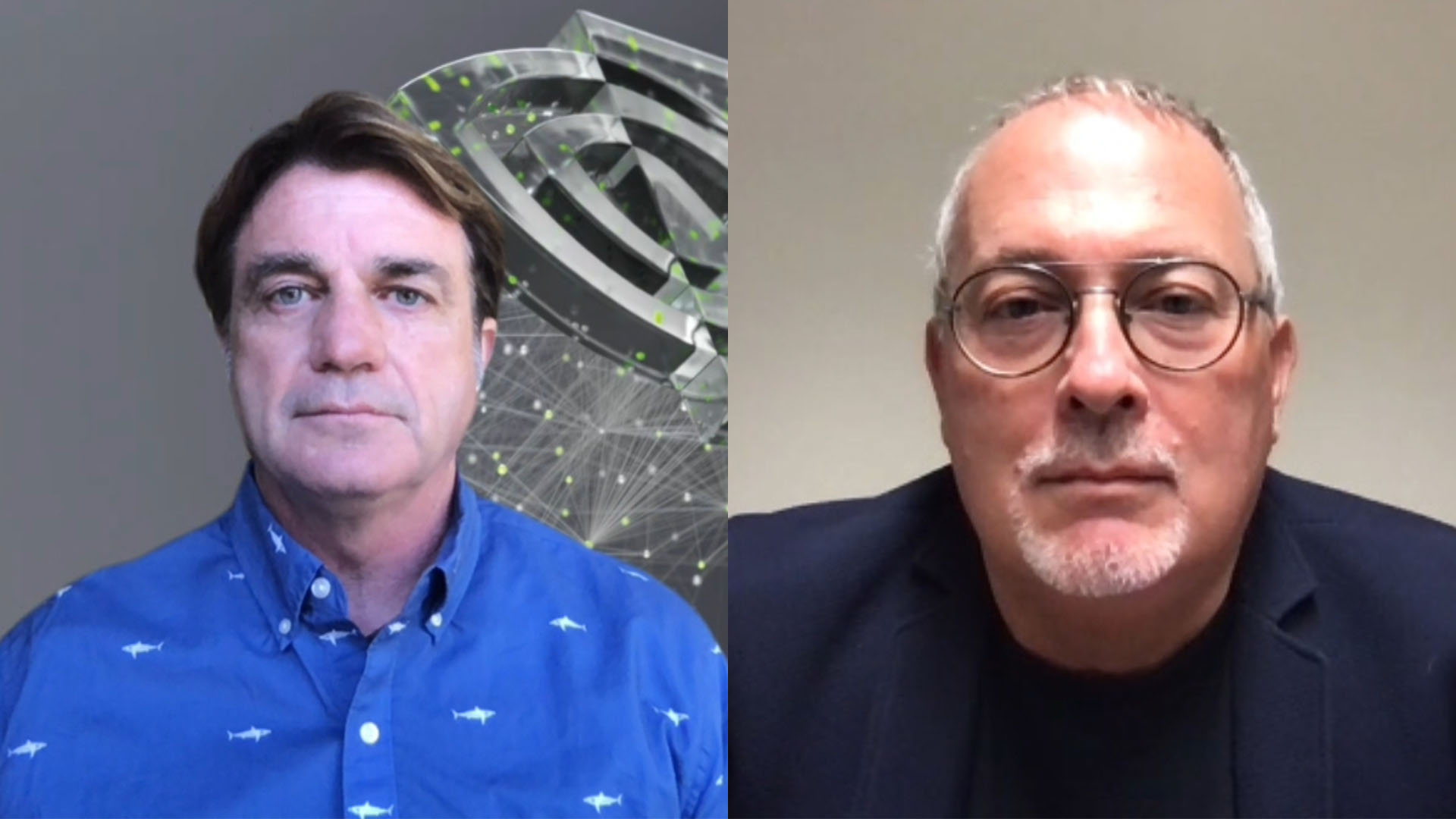 CLOUD
CLOUD
 CLOUD
CLOUD
 CLOUD
CLOUD
It is no secret that Nvidia Corp. has spent years building an extensive practice in artificial intelligence. One press release described the company’s work in the field as a “leading AI computing platform.”
In partnership with VMware Inc., Nvidia has leveraged the vSphere cloud virtualization platform to deploy its AI Enterprise software suite in conjunction with Dell EMC VxRail and PowerScale for a robust enterprise solution.
“At last year’s VMworld in 2020, the CEOs of both companies got together and made an announcement that we were going to bring our entire Nvidia AI platform to the enterprise on top of vSphere,” said John Fanelli (pictured, left), vice president of product, virtual GPU, at Nvidia. “The bottom-line impact is that AI is now accessible for the enterprise across the mainstream datacenter. With Nvidia AI Enterprise and VMware vSphere, they’re able to manage their AI in the same way that they’re used to managing their datacenter today. There’s no retraining, there’s no separate clusters and there isn’t a shadow IT. For the developer and the researcher, it makes it seamless.”
Fanelli spoke with John Furrier, host of SiliconANGLE Media’s livestreaming video studio theCUBE. He was joined by Maurizio Davini (pictured, right), chief technology officer of the University of Pisa, and they discussed how the school leveraged Nvidia’s AI Enterprise solution for its researchers and the value in removing complexity from the process using prebuilt containers. (* Disclosure below.)
The tight integration of VMware and Nvidia software allows organizations to virtualize multiple technologies inside of network systems. Organizations can share GPUs within servers, enabling multiple data scientists to accelerate deep learning workloads.
One user of this process is the University of Pisa, home to a Dell Technologies and VMware Center of Excellence. The university’s IT group has regularly tested new technologies supplied by the companies, and this included Nvidia’s AI solution.
“We decided to integrate our virtual infrastructure with AI resources in order to be able to use it in different and more flexible ways,” Davini said. “We were able to show that the performance on the virtual and bare metal worlds were almost the same. In the virtual world you are much more flexible, you are able to reconfigure everything faster and provide design solutions for researchers in a more flexible and efficient way.”
Nvidia’s and VMware’s work with the University of Pisa also provided fresh insight into finding new ways to simplify the deployment and management of AI systems.
“For all the benefits and activity that AI brings, AI can be pretty complex,” Fanelli said. “We’re bringing in prebuilt containers that remove some of the complexity. The containers allow you to do everything from initial data preparation and data science using things like Nvidia Rapids to doing your training using solutions like PyTorch and TensorFlow. It’s helping that AI loop become accessible; that AI workflow is something that an enterprise can manage as part of their common core infrastructure.”
For the university, simpler management of the AI workflow has been a net positive. Virtualization enables easier migration of workloads from one datacenter to another, which provides the kind of flexibility that researchers have come to value at the Italian school.
“The fact that the software stack has been simplified is something that has been accepted very well,” Davini noted. “The outcome of this work has been very big for our research group.”
Watch the complete video interview below, and be sure to check out more of SiliconANGLE’s and theCUBE’s CUBE Conversations. (* Disclosure: Dell Technologies Inc. sponsored this segment of theCUBE. Neither Dell nor other sponsors have editorial control over content on theCUBE or SiliconANGLE.)
Support our mission to keep content open and free by engaging with theCUBE community. Join theCUBE’s Alumni Trust Network, where technology leaders connect, share intelligence and create opportunities.
Founded by tech visionaries John Furrier and Dave Vellante, SiliconANGLE Media has built a dynamic ecosystem of industry-leading digital media brands that reach 15+ million elite tech professionals. Our new proprietary theCUBE AI Video Cloud is breaking ground in audience interaction, leveraging theCUBEai.com neural network to help technology companies make data-driven decisions and stay at the forefront of industry conversations.